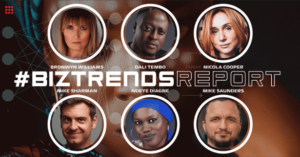The millennial generation has many people wondering what makes them tick. They are enigmas, a mysterious generation that either frustrates or excites you. Their potential is massive however, they are often left unguided in organisations because they confuse older generations. Inherently corporate organisations, and even small boomer orientated businesses, struggle to unlock the potential in millennials.
As we work with our Millennial counterparts more it’s becoming evident that their own frustrations are routed in two primary world views:
Firstly, the disconnect between what they experience in day to day life verse what happens inside the organsiations they work in. The way we access people and information has changed thanks to our connection economy.
Secondly, the cynicism that has developed as they watched the previous generation fail at keeping our planet alive and our people happy. The way we lead has changed to become more personal and deliberate, no more sweeping visionary statements in the hope that people follow. Millennials are entering our organisations ready to make a change and skeptical that the current methods are working.
In dealing with the first world view, there are a few things you can do to improve your culture to be friendlier to Millennials.
Access to Information
In Huddles latest Enterprise Information Landscape Study, 18-31 year olds show the most frustration on everyday tasks that waste their time:
- Wasting time searching for documents
- Figuring out who has specific information to perform tasks
- Trying to find their co-workers contact details
Having grown up with technology and information at their fingertips, millennials grow ever more frustrated with antiquated information systems and weak technology. The list above is a simple list that wastes considerable time. These young people are not used to waiting and searching for this type of information, to date it’s always been available to them, it’s fast and easy to find. It’s beyond them that they should get paid to waste time like this. Their frustration is born out of a desire to do more and be more valuable but the process tends to leave them demotivated and listless.
Access to people
When we hire people, we ask them to bring their expertise, skills, network and ingenuity into our business. We get excited about seeing all their potential unpacking inside the walls of our organisation. When we hire young millennials, we have the same expectation but we cut them off at the knees. We cut off social networks to help them focus and in doing so we cut them of from their sphere of influence. Holding them back from bringing the right people to the table to help sell, promote, solve and collaborate with.
Social networks are the place where the Millennial generation learn, network, build influence and drive their knowledge forward. They use the power of social networks the same way Boomers used golf courses, networking events and corporate training. The internet and social media is an intuitive resource for Millennials, one they know how to use powerfully.
What to do:
- Embrace a BYOD (Bring your own device) policy when it comes to people and what computers they use
- Adopt Cloud Based Technologies that provide access to information and people quickly
- Create online social technologies to connect large enterprises
- Embrace social media usage in your business
The second worldview is a bit harder to reach. There aren’t many technologies that remove cynicism. In my opinion this is best approached from a leadership aspect of the job.
Mentoring
Young people need direction, guidance and experience that comes from a good mentor relationship. They are a wonderful generation that can add huge value to your business. They are passionate, energetic, ready to leave their mark and to make a difference but they are still young, naive, and inexperienced. Mentorship relationships are a fantastic way to provide guidance and meaning to millennials without becoming prescriptive with rulebooks and disciplinary action. Partnering your young millennials with experienced professionals will help you get the most out of this younger workforce.
Narrative over Vision
Millennials are driven by purpose more than success. They want to know that whatever they put their mind to that they are contributing to a purpose. It’s not enough to ‘hit the target’, ‘get bigger’, ‘be better.” This is the language of vision statements, always looking to the future to be better, bigger, smarter and faster. It doesn’t inspire a generation whose families were the collateral damage of the visionary culture.
Narrative is, however, different. Narrative brings something new to your culture and your team dynamic. Narrative tells the story of why you exist and everyone loves a good story. Good storytelling draws people in; gives readers or listeners something to connect with; and has an underlying moral that teaches a lesson or challenges a thought. Narrative can be used to inspire and direct a younger generation towards why you do business. It’s the why that gets you to the where and what. The why however is much more motivating, especially to a millennial who doesn’t want to repeat the mistakes of her parents.
Trust them
It has been said that scientists are difficult people to headhunt simply because their work is project orientated. They generally want to reach the end of their project because the recognition and completion of the project is more important than a bigger paycheck. Flip that towards how we manage millennials as they generally get the repetitive, menial tasks that carry zero risk or reward. It’s no wonder that they don’t show loyalty to the business. The business doesn’t trust them to finish something of value, so why should they trust the business with their career.
Trusting millennials with projects that let them make a difference will help foster a culture of contribution. One where they feel like they are a part of the solution. It’s more motivating to be a part of the success than just another pencil pusher.
What to do:
- Lead in a personal manner with mentorship programmes
- Drive a message of purpose instead of destination
- Trust people to add value






